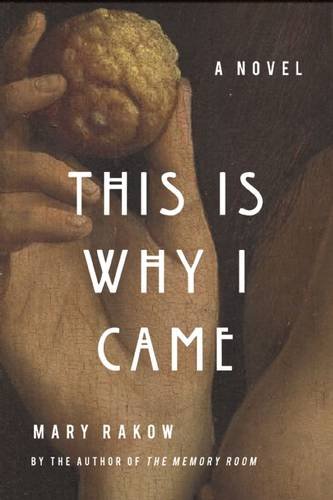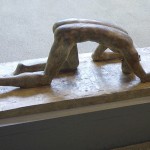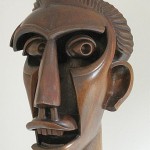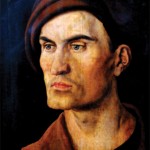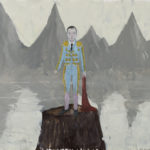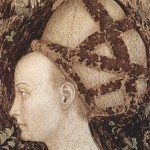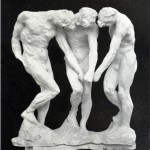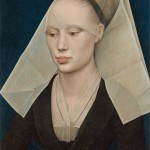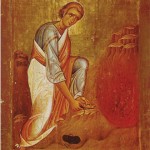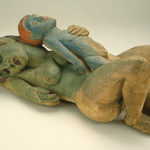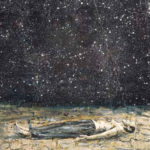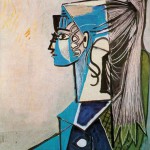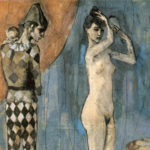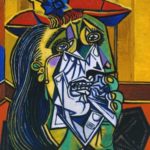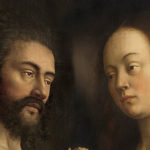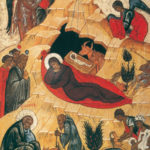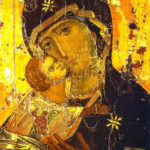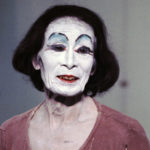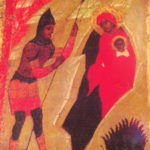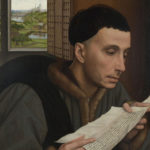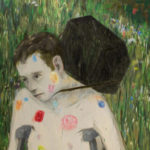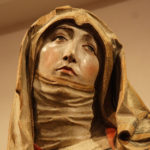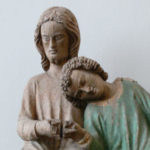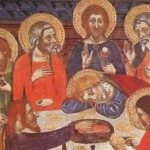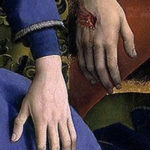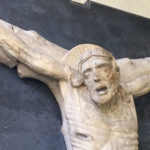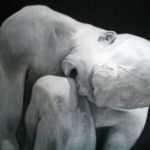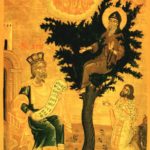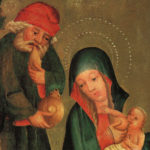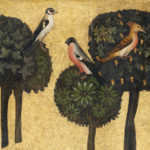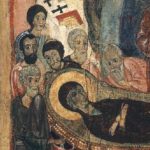Reviews
“In 62 very brief tales, she evokes kindred spirits buffeted by a sense of divine implacability… Rakow’s feat in these fragments is to blend the gnomic and the prosaic, skepticism and wonder.”
“…Rakow, a theologian who studied at Harvard Divinity School and Boston College..has written with great love and deep faith…The stories are luminous, numinous. Examine it thoroughly. It’s miraculous.”
—Lawrence Wood, Christian Century
“… [F]illed with brief, often poetic recastings of the Old and New Testaments… Rakow thoughtfully offers sensitive and complex readings that are free of moral thundering… Rakow doesn’t radicalize the Bible but she does make it more humanistic and poetic… An affecting flash-fiction reimagining of the Good Book.”
“[Rakow has] cast off her academic robe for this delicate work of fiction, which is informed by the most basic human desires and disappointments….Rakow moves unpredictably from the simple, stark details of the Sunday School versions we know to her own striking emendations and elaborations….brief as these prose poems are, they’re still capable of arresting moments and startling insights … the novel is tremendously poignant as it follows the life of Joseph, who speaks no words in the Gospels but finds his voice here.”
—Ron Charles, The Washington Post
“The outlines of the Bible stories are familiar, but their characters are more rounded, more poignant in Rakow’s spare but poetic telling.”
“I cried when I read Rakow’s chapter 44…in which an aged Mary sets out to paint her son. The passage is absolutely secular, yet spirituality breathes from the depth of love conveyed and the tenderness of the prose itself. Rakow’s prose sings at this register of humanistic truth, infused with the sacred power of language and feeling rather than of the capital-D Divine.”
—Courtney Sender, Harvard Divinity Bulletin
“Rakow’s latest novel brims with wildly imagined Bible stories, into which she infused new layers of mystery and mysticism, ambiguity and wonder. In her hands, tales we’ve heard all our lives achieve the miracle of surprise.”
—“10 Titles to Pick Up Now”, O Magazine
“These stories, both Old and New, are awash in dread and terror and beauty. They aren’t lifeless myths; they are mythic stories once again given flesh and blood.”
—Anthony Domestico, Commonweal Magazine
“This is Why I Came is made salvific by its searching; rather than confronting the fact of human suffering with assertions of light, the novel voyages further into the darkness of essential mystery. Resistant to crystalline denouement and wary of firm answers, it beautifully bares the ragged edges of uncertainty. In cracking open ancient texts and considering them anew, Rakow insists on the value in still grappling with those ageless, unresolvable matters—questions of where we came from, and why, and how we might be now that we are here.”
Blurbs
“I did not think it was possible but Mary Rakow has made the ‘greatest stories ever told’ even better. This is Why I Came is a beautifully wrought book you won’t be able to put down”
—Reza Aslan, author of No god but God and Zealot: The Life and Times of
Jesus of Nazareth
“This Is Why I Came is a remarkable and remarkably unclassifiable book. Neither revisionist text, nor compendium of Bible tales made palatable to post-modern sensibilities, Rakow’s scripture (what else can I call it?) is an entirely new creation. These holy narratives aren’t summoned forward to meet us in our present time and place. Instead, it is us she coaxes back to the when of the events as they occur. And in this book, they do occur. There is no metaphor here. A miracle is exactly that. And miracles don’t always end well. Mary Rakow has written through (and against and underneath and between) the stories we already know—or think we know. Her cadence is incantatory. The wisdom, ancient. This is a book of great and dangerous grace.”
—Jill Alexander Essbaum, New York Times bestselling author of
Hausfrau and The Devastation
“In these few exquisite pages, Rakow strips the skin of centuries from the central narratives of Western Culture, exposing the rawly human in all our grief and yearning. She portrays religion not as refuge, as gift, but as an arena of mistakes, passion and error, delusion–the profoundly disruptive encounter with God. An inflammatory, Blakean tour de force.”
—Janet Fitch, author of Paint it Black and White Oleander
“There are some novels that are nearly impossible to describe, that eviscerate us with their power and resonance. Mary Rakow’s, This is Why I Came, gathers ancient stories like worn and dried kindling, and ignites them with a blue incandescent light. The smoke catching in my lungs, my eyes wet and red. Yet I stayed to be warmed by this new, uttering transfixing reinvention of the stories of the Bible. Through the poetry of her phrases I stood breast to breast, hearts beating, breathing the same scented air as those who have been trapped within the pages. I felt unyielding love of the two Mary’s, the vessel and the whore; the blood spattered on stone—the humanity and divinity of a questioning, complex Jesus and his disciples, and so much more. Rakow has indeed created the Newest Testament. I will never look at Scripture in quite the same way.”
—Cynthia Bond, author of Ruby
“This lean volume filled my soul. Rapturously beautiful, tender, complex, Mary Rakow has written sentences and entire passages you need to read aloud to really hear the symphony of language. You can debate the message of This Is Why I Came, but you must acknowledge its wisdom.”
—Samantha Dunn, author of Not By Accident and Failing Paris
“Who would dare re-imagine the stories of the Bible? Mary Rakow, that’s who. Author of a brilliant debut novel, The Memory Room, a Harvard Divinity School graduate gifted with the ear of a poet, Rakow’s long awaited second novel, This Is Why I Came is unusual, effortlessly lyrical and philosophically direct. The product of someone, rare in our time, who seems possessed of a biblical imagination. That the novel is controversial and culturally timely is clear, entering the current belief/disbelief debate in an intimate and original way. Yet the novel gifts us with far more than that. It is a ticket into a dream where the opaque feels transparent again, the shallow, profound and the presumed irrelevance of biblical characters, including God himself, is explored. In place of this rumor of our shared smallness, the transcendent quality of the world, of the ordinary, feels not only possible but logical, natural and true. As I read the last page, I was caught up in a trance where new meanings and understanding found a place to take flight.”
—David Francis, author of Stray Dog Winter and The Great Inland Sea
“In a gorgeous melding of fable, theology, and poetry, Mary Rakow offers us versions of Bible stories that restore the gift of those stories’ strangeness, which is to say their deep humanness. This disquieting, consoling novel is a book of questions, a book of doors: a companion for the long night of our unknowing.”
—Garth Greenwell, author of What Belongs to You and Mitko
“There is an entire subgenre of serious modern fiction that focuses on Jesus and other characters from the New Testament. Nikos Kazantzakis, José Saramago, Par Lagerkvist, Norman Mailer, Jim Crace, Colm Toibin, C. K. Stead: The list is long. It’s also mostly male, though recent books by Naomi Alderman, Michèle Roberts and Mary Rakow have begun to right the gender imbalance.”
—Christian Wiman, review of Lars Petter Sveen’s “Children of God”
The New York Times Book Review
“We think we know the Bible. We think we know these old stories like we know our bodies. But Rakow explores the silences in these texts imagining realities yet undreamt. The startling result is her long-awaited second novel, This Is Why I Came. Boldly and reverently she collapses time in her treatment of these biblical figures, grows forms and lifts the framework so that word becomes breath. She calls us to envision consciousness not enclosed in our heads or the spine of a book, even an ancient, and to many, a sacred book, but to celebrate it as alive, in constant interaction. This is what we look for in art. A vision that adds to the quality of our own consciousness, that breaks through reality as we know it. Our transfiguration.If all great art is praise, as she asserts, quoting Ruskin on her website, then This Is Why I Came is praise of the most high. In the first chapter, she imagines Adam as the Maker, driven to despair because he cannot make the form he longs to see, the form that will tell him who he is. In this, Rakow succeeds where her Adam failed. Through her protagonist Bernadette, she has made a new form that tells us who we are. In her hands, words become cups of light and symbols are given their potential to reveal, again and anew, what it is to be human.”
—Julianne Ortale, editor of Women on the Edge
and Music for Incurables, currently under review.

